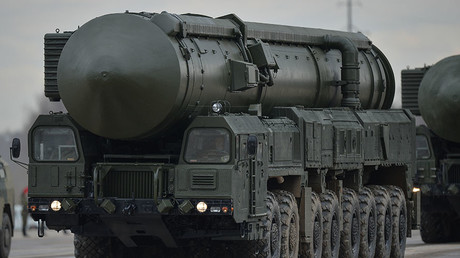Within earshot of the Legislative Yuan building in Taipei, 30,000 supporters of equal marriage rights cheered the passage of same-sex marriage bills through a legislative committee, as protesters gathered across the way.
“I just can’t help crying,” said Huang Shih Ming, 23, a college student, at a rally in support of same-sex marriage as rainbow flags flew above the joyous youthful crowd on Dec. 26.
Emotions are running high in Taiwan with the possibility of it becoming the first in Asia to legalize same-sex marriage. Two draft bills have passed the judiciary committee, heading to further consultations between party caucuses in the upcoming session, with final passage in the hands of the Legislative Yuan.
One of the drafts is composed of three similar proposals from various political parties, submitted in early November, to legalize same-sex marriage by expanding the definition of a couple in the civil code.
Another draft, proposed by Democratic Progressive Party (DPP) legislator Tsai Yi-yu, is an additional chapter to the civil code for gay-marriage rights without altering the original definition of a couple.
“The civil code symbolizes the origin of the civil law,” explained Yu Mei-nu, a DPP legislator, who introduced the bill. Therefore, other civil acts will be applicable to the new interpretation, Yu added.
She pointed out that the bill also provides the same adoption rights for gay couples as other couples.
Yu predicted that legalization might happen around next April or May if everything proceeds smoothly, but the bill needs social momentum to generate a favorable political climate.
The other assessment given by Jason Hsu, a young Kuomintang legislator who handed over a similar proposal, is that “same-sex marriage bills are having a 50-50 chance of passing in light of the social division on the issue.”
Most Taiwanese have a great tolerance for diverse cultures, said Yu. Taiwan's varied society has gone through reforms and challenges of traditional values over the past decades, leading the island to be a liberal outpost for gays.
DPP lawmaker Hsiao Bi-khim, who submitted the first gay marriage bill in 2006, ascribed the resilience to the island’s history of immigration.
“Taiwanese are not so bound by tradition. Taiwan is always moving,” she explained.
In fact, 11 cities are already way ahead of the central government on marriage equality in that they have instituted an official registration for same-sex couples.
With only symbolic recognition, there are still almost 2,000 couples signing up for a permanent open record in government, said Victoria Hsu, president of the Nonprofit Taiwan Alliance to Promote Civil Partnership Rights (TAPCPR).
The right to legally marry is important to same-sex families.
Julia Chang, a 35-year-old mother, said she often revises her will in the event anything happens to her, which “few people do at my age,” she added.
Holding a toddler in her arms, Chang’s deepest fear lies if her wife would not be allowed to make medical decisions for both mother and son since she is the one who gave birth.
“If I die, my son will be taken to child-care facilities because he has one legal mother,” Chang said. She believes that there are more families like theirs seeking the government’s help.
For some people, legalizing gay marriage is a symbol of equality whether they want to be married or not.
Yang, a 22-year-old college student who volunteered to distribute leaflets in the street promoting same-sex marriage, said being recognized by the law is the only way to eliminate discrimination.
“Even today, some friends of mine still become alienated after they learn of my sexual orientation,” said Yang, who is gay.
In fact, President Tsai Ing-wen, the DPP chairperson, declared her support of marriage equality during last year's presidential election, emphasizing the equality of love in a campaign video posted on Facebook.
Yet, the push for same-sex marriage rights has drawn strong resistance from religious groups and sparked a fierce debate in society.
On Dec. 26, the opponents made their stance clear by attempting to climb the fence at the Legislative Yuan building and shouting “stop reviewing, go for a referendum” amid shoving and pushing with police, resulting in more than a hundred arrests the same day.
In addition, hundreds of protesters in white approached the presidential building, upset by the passage in the judiciary committee, demanding that President Tsai come forward to explain the heightened tensions between dissenting parties.
Tsai Wei-en, the priest of Gangshen church, asserted that the bills violate constitutional law, which give a clear definition of a family, in a public hearing held in November, defending traditional family values.
“A number of elders in the central and southern regions oppose same-sex marriages,” he said of the Christian opposition.
He believed that the number of opponents is higher than thought since they are the “silent majority” of an older generation who are poor at publicizing their views.
Given the circumstances, the polarization has divided the DPP and put President Tsai in a quandary over how to deliver on her commitment.
Tsai, the anti-same-sex marriage priest, emphasized that the Presbyterian Church has always been a devoted supporter of President Tsai, which includes approximately 300,000 people in the Christian community.
“We are furious about the bills,” he added.
On the other hand, Hsu, president of TAPCPR, pointed out the political risks for the DPP in that the Sunflower Movement in 2014, in which student protesters occupied the Legislative Yuan, is one of the major reasons for President Tsai and her party achieving victory this year.
“Those who are backing gay marriage are the ones who took part in the Sunflower Movement. It’s the same people,” said Hsu.
Thus, the female president has to decide if she still wants their support in her next term.
The controversial proposal is described as “generational differences,” Yu observed. She said that roughly 80 percent of young people support marriage equality.
Hsiao said that most supporters for gay marriage are from the younger generation, which wants change, while the opponents are mostly from conservative religious groups.
To compromise, some legislators from different parties are drawing up a special law as a replacement of the civil code bills, which can be submitted directly to consultations between political caucuses without going through the judiciary committee, according to the decision made in the committee on Dec. 26.
Tsai, the priest on the opposition side, was mollified by a proposal of establishing a special law that represents a different meaning than amending the civil code.
“The draft could provide the same marriage rights for gay couples with inheritance, adoption and medical decision-making limitations,” Tsai suggested.
However, supporters still want to rely on the original draft to revise the civil code. Hsu believes that a separate law differentiating same-sex marriage from others makes it a form of discrimination.
“We will not make concessions to a special law,” she stated firmly.
The deep dividing dissension has prompted President Tsai, who is caught in the middle, to mediate the disputes, highlighting the importance of rational dialogue, according to Presidential Office spokesman Alex Huang.
To that end, she will set up meetings with various representatives of civic organizations around the end of January, Huang said.
“Diverse versions of the bills regarding same-sex marriage will be considered in the caucus consultations in the near future,” Ko Chien-ming, the DPP whip, told gay-marriage opponents in the meetings after the protest outside the presidential building.
Hsu, the president of TAPCPR, then predicted that if the special law, whose contents are unknown, overrides the previous civil code version, genuine marriage equality will have to wait at least a decade since society will need time to adapt to the new law.
Furthermore, “possible regime change” may influence the passage of same-sex marriage bills in the future as well, Hsu said.

